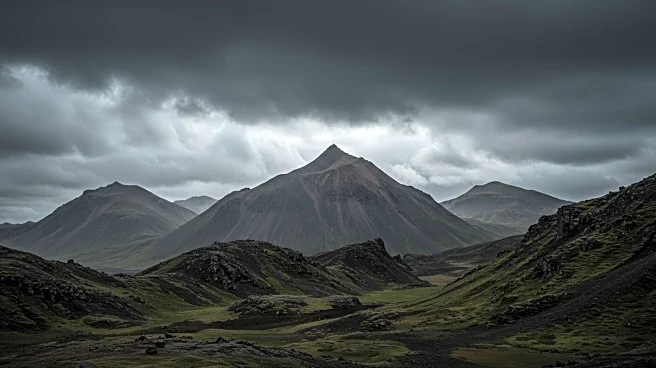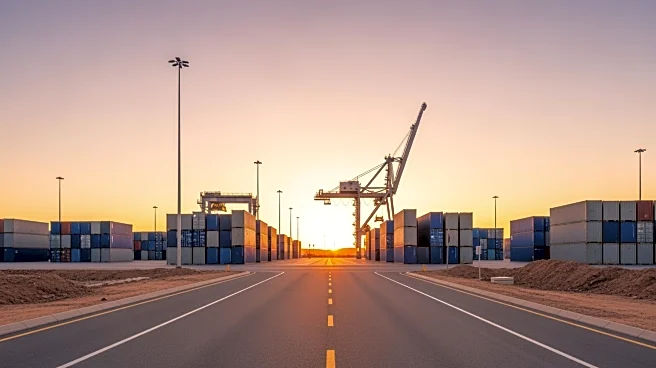What's Happening?
A significant earthquake struck the Brennisteinsfjöll Mountains south of Reykjavik, marking the strongest tremor in the area in seven years. The Icelandic Meteorological Office reported that the quake is part of a build-up of seismic tension that could lead to a larger event. Geophysicist Benedikt Halldórsson noted that the region experiences major earthquakes approximately every 50 years, with previous significant quakes recorded in 1929 and 1968. While the timing of a future quake remains uncertain, residents are advised to prepare for potential impacts, although modern construction standards are expected to mitigate damage.
Why It's Important?
The recent earthquake in the Brennisteinsfjöll Mountains highlights the ongoing seismic activity in Iceland, a country known for its geological volatility. The potential for a larger quake underscores the importance of preparedness and resilience in the face of natural disasters. For residents and authorities, this event serves as a reminder to review emergency plans and ensure infrastructure can withstand seismic impacts. The quake also draws attention to the need for continued research and monitoring of seismic activity, which can inform public policy and safety measures. As Iceland navigates these challenges, the event may influence international perceptions of the country's safety and tourism appeal.










